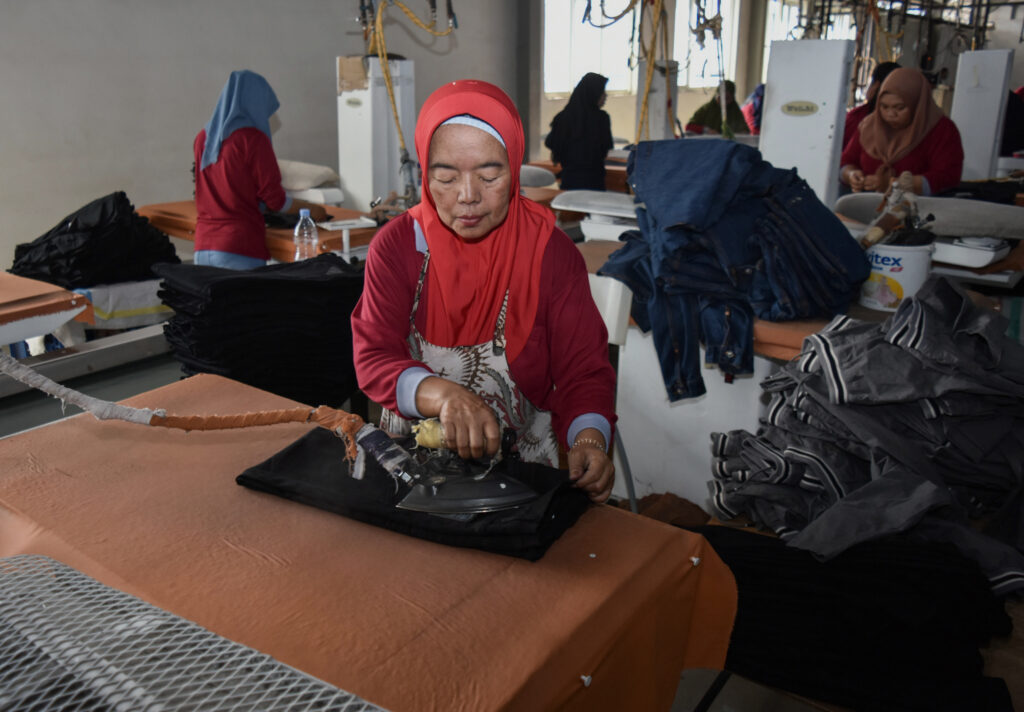
Indonesia's recent measures to limit imports, including shifting inspections to border checkpoints and proposing substantial Chinese goods tariff hikes have introduced unpredictability and caused logistical problems, aiming to protect micro, small and medium enterprises and address declining industrial value. While protectionist actions could benefit struggling sectors, there are concerns that this approach could strain trade relations, violate international agreements, create domestic disputes and potentially harm domestic industries, suggesting instead that collaboration with China and caution in policy formulation would better maintain a favourable business climate and attract investment.
The protectionist stance of successive Indonesian governments is well-known, but recent measures to limit imports have introduced more uncertainty. Late last year, the government introduced regulations to tighten import restrictions, but public and business sector complaints led to multiple revisions within just a few months. To combat illegal importation and thrifting, the government also shifted inspections of certain imports from post-entry to border checkpoints.
While this aims to improve control of imports, it has caused slower logistical processes and container backlogs at key ports. Additionally, Trade Minister Zulkifli Hasan recently proposed controversial tariff hikes on various Chinese goods, potentially increasing them by up to 200 per cent, though this statement was later toned down.
A key reason behind the government’s inward-looking approach is the desire to protect micro, small and medium enterprises, which contribute 61 per cent of GDP and employ 97 per cent of the workforce. This protectionist stance is also driven by concerns over the declining level of industrial value-add to GDP, which has fallen from 22 per cent in 2010 to 20 per cent in 2023. Recent factory closures and layoffs have intensified the urgency to address these issues, leading to the tariff proposal by the trade ministry following a limited meeting chaired by the President Joko ‘Jokowi’ Widodo.
Like in many other countries, Chinese products are often blamed for the surge in imports and trade imbalances in Indonesia. The growth rate of imports from China consistently outpaces other nations, largely due to China’s massive trade expansion and active free trade agreements. These factors have caused economic shocks and competitive pressure worldwide, frustrating some countries. Following the US–China trade war, tensions between the EU and China have also escalated.
Meanwhile, there has been a global increase in anti-dumping, countervailing and safeguarding measures targeting Chinese products. This situation has heightened concerns in Indonesia, where there are growing fears that surplus Chinese products, unable to be absorbed by nations restricting them, will flood Indonesian markets.
Over the past decade, China has emerged as Indonesia’s main trade partner, with its market share increasing from 17.2 per cent to 28.4 per cent. Most of these imports are intermediate and capital goods — in the textiles sector Indonesia imports more upstream products than downstream clothing items, a pattern seen in Vietnam and Bangladesh as well. Chinese garment exports to Indonesia account for a mere 0.3 per cent of China’s total exports, while textile products make up approximately 4–5 per cent.
But Indonesia’s increasing imports of Chinese inputs have not yet translated into higher productivity and better export performance in garment products. Despite various interventions, the challenges facing the industry have compelled the government to once again seek remedies for this struggling sector.
Raising tariffs on Chinese products by 200 per cent may not be an appropriate policy. It conflicts with the non-discriminatory rules of the World Trade Organization (WTO) and undermines Indonesia’s trade commitments under the ASEAN-China Free Trade Agreement (ACFTA), where the average implemented tariffs are nearly zero. If the proposal goes forward, it could strain trade relations and violate international trade agreements.
Any new tariffs on Chinese products should not conflict with WTO obligations. Trade remedies — such as anti-dumping measures — are legitimate methods for imposing tariffs. But these methods require investigations to determine if dumping, subsidies or import surges are harming domestic industries. The resulting tariffs are then based on the investigation’s findings, not predetermined amounts. Interestingly, Indonesia’s Business Association for Ceramic Producers (ASAKI) has recently called for anti-dumping measures on Chinese ceramic products, which could result in tariffs of up to 199 per cent. But this proposal has sparked domestic disputes with some stakeholders questioning the investigation process.
Another approach is to impose regulations to control imports, which, if translated into tariff equivalents, would effectively resemble high-percentage tariffs. Yet non-tariff measures (NTMs) can be more destructive than tariffs. They operate through a complex web of administrative rules and regulations, often lacking transparency. Studies suggest that NTMs might harm domestic industries rather than protect them.
While the government may be wary of rising imports, they can also signify a flourishing economy and industrial sector, boosting productivity and exports. The trade war between China and the US and the EU would additionally force China to diversify and Indonesia could benefit like Vietnam and Bangladesh.
China’s large economy generates significant demand and absorbs many products, including commodities. Indonesia has already capitalised on exporting coal and crude palm oil and is developing nickel and steel smelters. Collaborating with China in sectors like electric vehicles (EVs) industries could offer further advantages. But protectionist actions aimed at Chinese products could provoke retaliatory measures, similar to China’s response against the EU.
More importantly, Indonesia received a surge of investment, much of it from China. Imports financed by inward investment should be expected. Trade policy will not meaningfully reduce imports in this case. In fact, it may reduce the inefficiency of Indonesian investment.
To maintain a favourable business climate and attract investment, the government must be cautious when formulating and communicating policies. Rushed, poorly planned and frequently changing policies can deter businesses from investing in Indonesia. Clear and thoughtful public statements from the government are crucial to avoid creating unnecessary concern among the public and investors.
Source: East Asia Forum
Share: